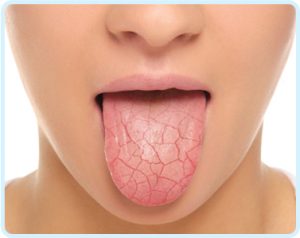It is well-known that your oral health affects your overall health. But did you know that dental health has correlations to diabetes, Alzheimer’s disease, and heart disease? In this series of blog posts, we’ll be delving into how oral health is linked to such extreme health conditions and what you can do about it.

In the last blog post, we discussed how poor oral hygiene and periodontitis is the sixth complicating factor of diabetes. Periodontitis and diabetes can actually go around in a harmful cycle where your body’s reaction to gum disease can increase your blood sugar level and the symptoms of diabetes (like dry mouth) contribute to periodontitis. In this blog post, we will be delving into how to stop the cycle, manage your oral health, and look after your general health in the process.
Your Dentist
First thing’s first: keep your dentist up to date about your medical condition. Your dentist needs to know if you are suffering from diabetes as well as how you’re managing it. If you’re finding it hard to manage your diabetes, your dentist needs to stay informed so they can adjust your treatment plan and advise you accordingly. Your dentist will be able to tailor your treatment plan to your specific condition.

Dental Treatments
In the early stages of gum disease (and diabetes), routine check ups and cleans will help manage and remove any plaque and calculus build up on/around your teeth and gums. However, if the gum disease worsens to periodontitis, extensive scaling, deep cleaning, root planing, periodontal debridement, or even periodontal surgery may be needed.
As mentioned before, dry mouth is also a symptom of diabetes which can make your mouth inflamed and sore, and can also cause difficulty chewing and swallowing. Your dentist (and/or doctor) can prescribe medicines that would help moisten your mouth and also give you tips on how to maintain moistness. Your dentist can also treat oral thrush (candida albicans) and advise you on preventative measures.

If you need to go in for oral surgery, poorly controlled diabetes will definitely present a complicating factor. Diabetes slows down the rate of healing and also increases your risk of post-surgery infection. Your blood sugar levels may even be harder to control after the surgery so it is best that you have it under control first before you go ahead. Talk to your dentist and plan what you’re going to eat after the surgery. Soft foods and liquids may be in order if the dental work will leave your mouth feeling sore.
Preventative Measures
Of course, dentists always recommend that you maintain your oral hygiene at home by brushing twice a day and flossing at least once a day. Also, if you wear a denture, make sure you clean it daily. If you are unsure how to best do these things, ask your dentist to demonstrate for you. Regularly visit your dentist to maintain your oral health and update them on your condition. A handy tip: book your dental appointment in the morning when your insulin level is more stable.

You should definitely avoid smoking. Diabetes already slows down your rate of healing – smoking certainly contributes to this as well. Smoking also aggravates your gums and oral soft tissue, significantly worsens any gum disease/periodontitis, and complicates healing after any oral surgical procedure.

Make sure you pay special attention to controlling your blood sugar levels. Follow what your doctor has recommended and take any medications that have been prescribed. Also change to a healthy diet with low- or no-sugar foods and exercise regularly. By doing these things, you maintain a healthy blood sugar level and that will help your body fight off any infections (in your mouth and body in general).

